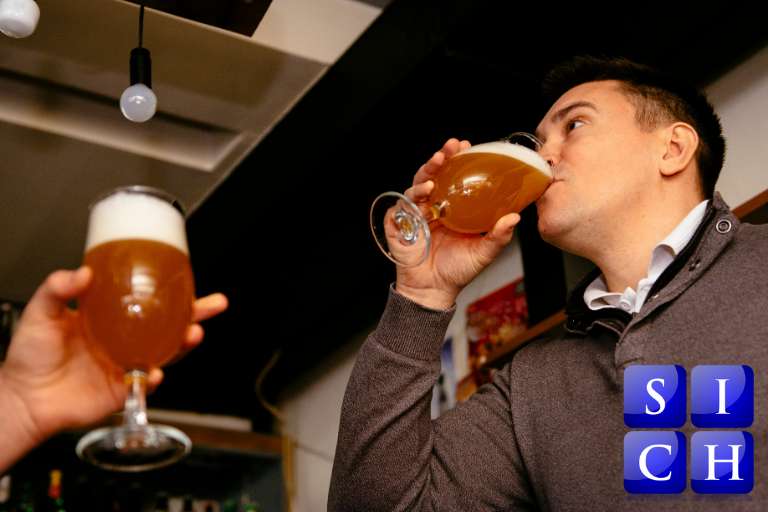Table of Contents
A Guide to understanding and overcoming
Binge drinking, characterised by a pattern of consuming excessive amounts of alcohol with the sole purpose of getting intoxicated, has become a concerning phenomenon across many western countries. While the definition of binge drinking varies across countries, the underlying theme remains constant: it’s a harmful, self-destructive behaviour, detrimental to both the drinker and those around them. In this article we delve into the core of binge drinking and introduce hypnotherapy as an effective way to address and overcome this destructive behaviour.
Understanding binge drinking
At its core, binge drinking is the act of heavy, unrestrained drinking that often results in neglecting responsibilities, squandering money, and engaging in harmful behaviours that can lead to encounters with the police or emergency services. The definition of binge drinking varies, with the United States defining it as consuming four or more drinks (for women) or five or more drinks (for men) on one occasion. In the United Kingdom, binge drinking is defined as consuming 11 or more drinks on an occasion.
The implications of binge drinking
Often mistaken as harmless fun, binge drinking poses severe risks to both the drinker and those around them. Binge drinkers may face consequences such as missing work, damaging property, engaging in unplanned sexual activity, and even experiencing alcohol poisoning. People around binge drinkers are also at risk, facing potential interruptions to leisure time or sleep, experiencing humiliation or insults, property damage, or even physical and sexual assault.
The reasons for binge drinking are multifaceted, including motivations to get drunk, status associated with drinking, cultural norms, peer pressure, and stress.
Recognising a binge-drinking problem
If you find yourself engaging in heavy drinking more frequently, specifically with the intention to get drunk, or if your drinking is causing disruptions at work or conflicts with your family or partner, you might be dealing with a binge-drinking problem.
Hypnotherapy: is an effective solution for binge drinking
If you recognise these harmful behaviours in your life, hypnotherapy combined with Neuro-Linguistic Programming (NLP) can offer a powerful solution. Hypnotherapy and NLP have successfully helped many people change their destructive behaviours into healthier ones.
Often, we are adversely programmed by negative thoughts and feelings, which can lead to harmful behaviours like binge drinking. Hypnotherapy can effectively reprogram these negative patterns into more positive outcomes, facilitating a change from the ‘drink to get drunk’ mentality to a more controlled and enjoyable approach to alcohol.
Hypnotherapy promotes self-control, providing techniques that encourage the brain to shift from the thought of excessive drinking to having a moderate and enjoyable amount. By addressing and altering these subconscious thoughts, hypnotherapy provides a powerful tool to combat binge drinking.
Turn your life around with the help of hypnotherapy. Swap the harmful, self-destructive behaviours for a healthier, more enjoyable relationship with alcohol. After all, the path to recovery begins with a single step.

